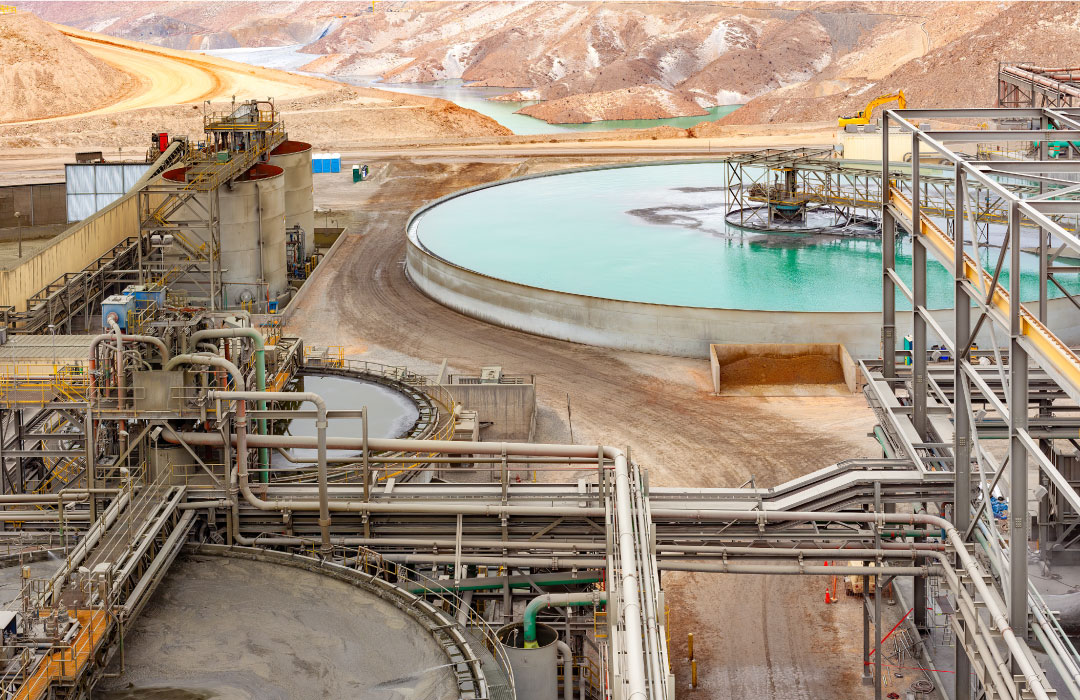The importance of Latin America in the green energy transition
Latin America is a region with vast mineral wealth. Its involvement will be crucial for the green energy transition that has recently started in North America.
Latin America has embraced green mining principles early on, largely due to local community values and available sources of investment. Most investors have been global mining groups or local companies. At Projects RH our experience has been that in Latin America there are strong Indigenous or Afro-descending communities that consider mining, even if it lasts for fifty years, to be temporary. They have a different perspective on time and our relationship with the planet. Many in these groups immediately focus on life after mining, which prepares them to take a firm stance against mining unless certain conditions are met, and they receive government support.
The Latin American experience varies, but for brevity, we need to generalize. Residents seek a share of the wealth and prosperity brought by mining, as well as improved services (water, power, communications, etc.) and employment opportunities for their community (with a preference for training and hiring locals). In Latin America, the understanding that mining is not permanent sets them apart, emphasizing transferable job skills.
Historically, the extraction of resources has often come at the expense of the environment and local communities, leading to a growing emphasis on sustainable mining practices in the region. Recently, there has been a shift towards green mining in Latin America, with various initiatives and efforts aimed at reducing the negative impacts of mining on the environment and promoting sustainable development.
What is green mining
Green mining is a concept that emphasizes the use of environmentally friendly techniques and technologies in and by the mining industry. It involves minimizing the use of non-renewable resources, reducing carbon emissions, and promoting responsible management of waste and water. It also focuses on protecting the health and safety of workers and local communities.
The mining industry has played a significant role in the economic development of Latin America; one only has to think of the Spanish thirst for gold from the New World. However, it has also caused significant environmental damage and social issues such as displacement of indigenous communities, pollution of water sources, and deforestation.
In recent years, there has been a growing awareness of the need for sustainable mining practices in the region. The impact of climate change and increasing pressure from environmental groups and local communities have also contributed to this shift towards green mining.
Why is mining reducing its environmental impact?
At Projects RH, we understand that modern mining must earn and maintain a social license. We recognize the global political reality that mining will not proceed without local support. Mining activities lead to the permanent removal of ore or other resources from the community. These activities typically have a detrimental impact on the environment, causing deforestation, air and water pollution, land destabilization, and soil erosion.
Green mining practices aim to mitigate these impacts by employing sustainable techniques such as replanting, recycling, and cleaner production methods. By reducing resource consumption and implementing responsible waste management, the mining industry can lessen its environmental footprint and safeguard surrounding ecosystems.
Promoting sustainable development
One of the key reasons why green mining is crucial for Latin America is its potential to promote sustainable development in the region. By implementing environmentally friendly practices, mining companies can reduce their carbon footprint and preserve natural resources for future generations. This not only benefits the environment but also contributes to the economic growth of local communities by creating more jobs and promoting responsible use of resources.
If you accept that mining activities can have a detrimental impact on the environment, then the adoption of green mining practices aims to reduce these impacts by using sustainable techniques and cleaner production methods. An example of this is not allowing unclean water to enter river systems.
Local people matter
Long gone is the sole criteria for mining being in the national interest. The negative impact of mining activities on local communities is a significant concern in Latin America. Green mining practices prioritize the health and safety of workers and nearby communities by reducing exposure to hazardous chemicals and emissions and promoting responsible waste management. This helps to prevent health issues and protect the livelihoods of those living near mining sites.
Initiatives and efforts towards green mining in Latin America
The push towards green mining in Latin America has led to various initiatives and efforts being taken by communities, governments, mining companies, and non-governmental organizations (NGOs). For instance, the Government of Chile has launched a program called “Innovative Program for the Promotion of Clean Technologies in Mining” to support the development of more sustainable mining practices. This program provides grants and technical assistance to companies that are implementing innovative techniques to reduce their environmental impact.
In Peru, the country’s Ministry of Energy and Mines has introduced a new regulation that requires mining companies to submit a plan for sustainable mining practices as part of their environmental impact assessments. This is a significant step towards promoting green mining in the country.
There are also many NGOs working towards promoting sustainable mining practices in the region. One such organization is the Alliance for Responsible Mining (ARM), which works with small-scale miners in Latin America to promote responsible mining practices. They provide training and support to miners to improve environmental and social standards, as well as promoting fair trade practices.
Challenges and roadblocks
Despite the efforts being made towards green mining in Latin America, there are still several challenges and roadblocks that need to be addressed. One major challenge is the lack of awareness among small-scale miners about sustainable practices and their benefits. Many small miners may not have access to the necessary resources and technology to implement green mining techniques, making it difficult for them to comply with regulations.
Another challenge is the high cost of implementing green mining practices, which can be a barrier for smaller mining companies.
Also, Illegal mining in Latin America is a challenge due to environmental destruction, human rights abuses, and the involvement of organized crime.
A collective responsibility
The team and projects at RH see that there is a pathway forward to advance towards truly sustainable mining practices in Latin America. It is crucial for all stakeholders – governments, mining companies, and local communities – to work together. Governments must continue to create and enforce regulations that promote green mining practices while also providing support and resources for smaller companies. Mining companies need to prioritize sustainability in their operations and invest in innovative technologies that can reduce their environmental impact. Local communities must also be involved in the decision-making process to ensure their voices are heard and concerns are addressed. In addition, buyers must only buy from certified suppliers.
At Projects RH, we believe that it will be the investors and lenders who will have the greatest impact. Once it is clear that critical buyers will only buy from accredited suppliers, then they will insist on meeting those standards as a condition of investing or lending.
Green mining is a crucial step towards promoting sustainable development in Latin America. With the growing awareness and efforts being made towards implementing environmentally friendly practices, we can hope to see a more responsible and sustainable mining industry in the region. It is a collective responsibility of all stakeholders to work towards a greener future for the mining sector in Latin America.
By Paul Raftery, CEO of Projects RH.
If you have a mining project…
Please send you materials to paulraftery@projectsrh.com and then book a time to speak at https://outlook.office365.com/owa/calendar/PaulRafteryProjectsRH@projectsrh.com/bookings/ Please allow me 24 hours to send a link and read your summary.
Gain Investor Confidence with Projects RH: Effectively prepare your mining project for success in securing the funding you require. Unlock the power of eco mining and join the exciting journey toward a more sustainable tomorrow!







